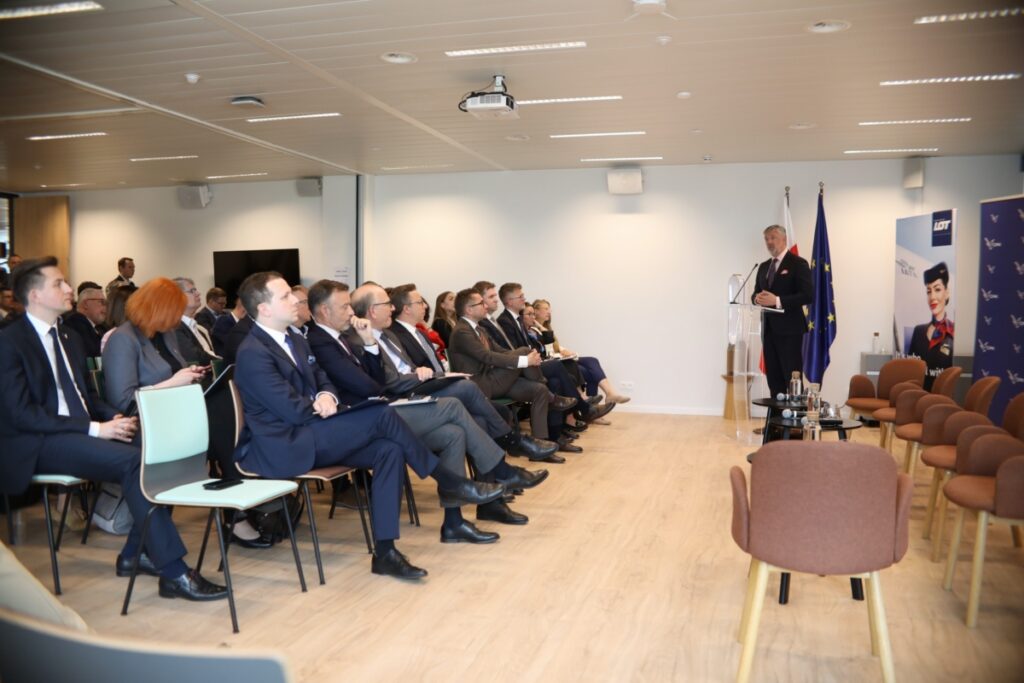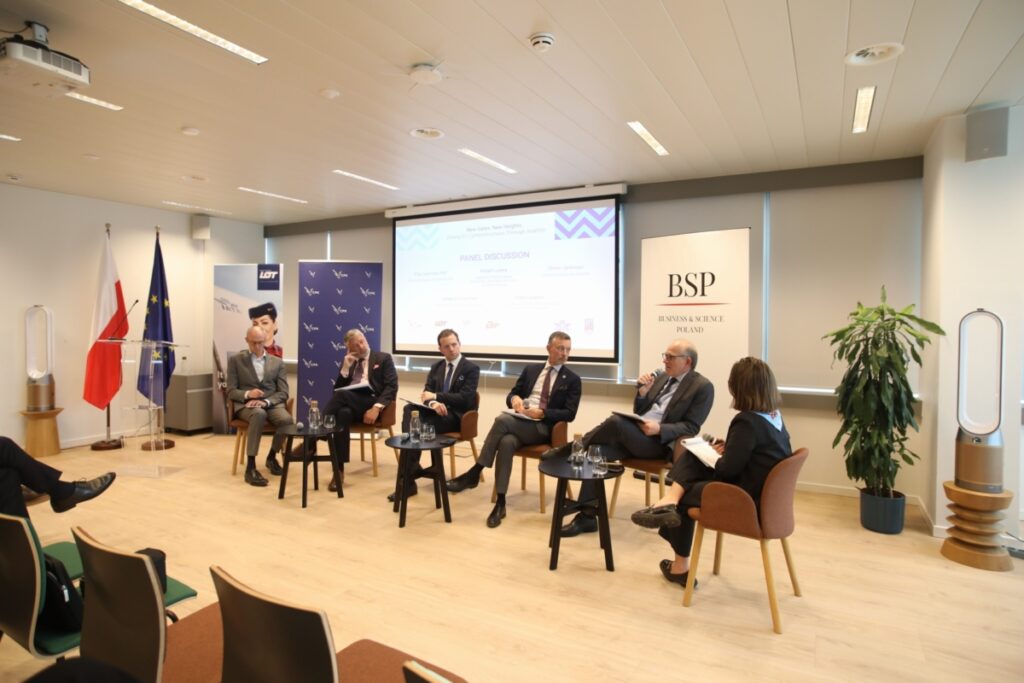As Europe navigates rising global competition and ambitious climate goals, the Polish aviation industry is calling on the European Union to take urgent and strategic action to protect the future competitiveness of its airports and airlines. At a high-level summit held on May 21 in Brussels, New Gates, New Heights: Driving EU Competitiveness Through Aviation, aviation leaders and policymakers warned that without decisive support, Europe’s air transport sector risks falling behind.
The event, hosted under the Polish Presidency of the EU Council and co-organised by Centralny Port Komunikacyjny (CPK), LOT Polish Airlines, and Business & Science Poland, underscored aviation’s critical role in the European economy. The sector supports 15 million jobs, generates €1.2 trillion in economic output, and contributes 4.6% to the continent’s GDP. In Poland alone, aviation directly employs nearly 55,000 people and supports a broader ecosystem contributing over $15 billion to GDP.
At the heart of Poland’s strategy is the ambitious development of the Centralny Port Komunikacyjny, a state-of-the-art, net-zero-ready multimodal transport hub designed to meet future passenger demand while aligning with the EU’s Sustainable and Smart Mobility Strategy. The CPK project will integrate high-speed rail and road links with a next-generation airport, improving connectivity across Poland and to major European cities.
“The capacity of Chopin Airport is nearing its limits, which is why CPK is essential,” said Filip Czernicki, CEO of CPK. “It will offer seamless access by air, rail, and road, supporting Poland’s rapid economic growth and reinforcing our role in Europe’s transport network.”
While infrastructure plans signal optimism, industry leaders expressed concern about the mounting financial pressure EU carriers face from escalating environmental requirements, particularly around sustainable aviation fuel (SAF). The European Commission’s decarbonisation roadmap anticipates costs of €61 billion annually between 2031 and 2050, driven largely by the mandatory scaling of SAF use to 70% by mid-century.
For airlines like LOT Polish Airlines, which currently lacks access to domestic SAF production, the cost burden is already significant. In 2025 alone, LOT is projecting SAF-related expenses of €40 million, a figure expected to rise to €100 million by 2030. SAF currently costs three to four times more than conventional jet fuel, creating an uneven playing field against non-EU carriers that operate under less stringent regulations.
“We are strong, innovative, and capable,” said Michał Fijoł, CEO of LOT Polish Airlines. “But we must have the same opportunities as our global competitors. A strong airline brings much more than profits, it brings connectivity, jobs, and exports.”
To protect the competitiveness of the aviation sector while meeting climate goals, CPK and LOT are urging the European Commission to incorporate aviation more fully into its flagship industrial and environmental strategies. Their recommendations include:
- Embedding aviation in the Clean Industrial Deal and Sustainable Transport Investment Plan
- Increasing EU budget allocations for multimodal infrastructure under the next Multiannual Financial Framework
- Introducing targeted financial support for SAF production
- Exempting SAF from fuel tax proposals
- Removing redundant non-CO₂ monitoring requirements
- Creating a virtual SAF certification trading system
- Establishing a burden-equalisation mechanism for EU and non-EU carriers
- Enforcing fair competition safeguards in international aviation

These proposals aim to balance environmental ambition with commercial viability, ensuring the aviation industry can continue to fuel economic growth and remain globally competitive.
As the EU contemplates its long-term transport strategy, Poland’s aviation sector is sounding a clear alarm: without targeted support and smarter regulation, Europe’s global standing in aviation could erode rapidly. The message from Brussels is unequivocal, air transport is not merely a convenience, but a cornerstone of Europe’s economic resilience, innovation, and international reach.
By championing projects like CPK and advocating for fairer regulatory conditions, Poland is positioning itself not only as a future hub of European connectivity, but as a voice for safeguarding the continent’s aviation future.



